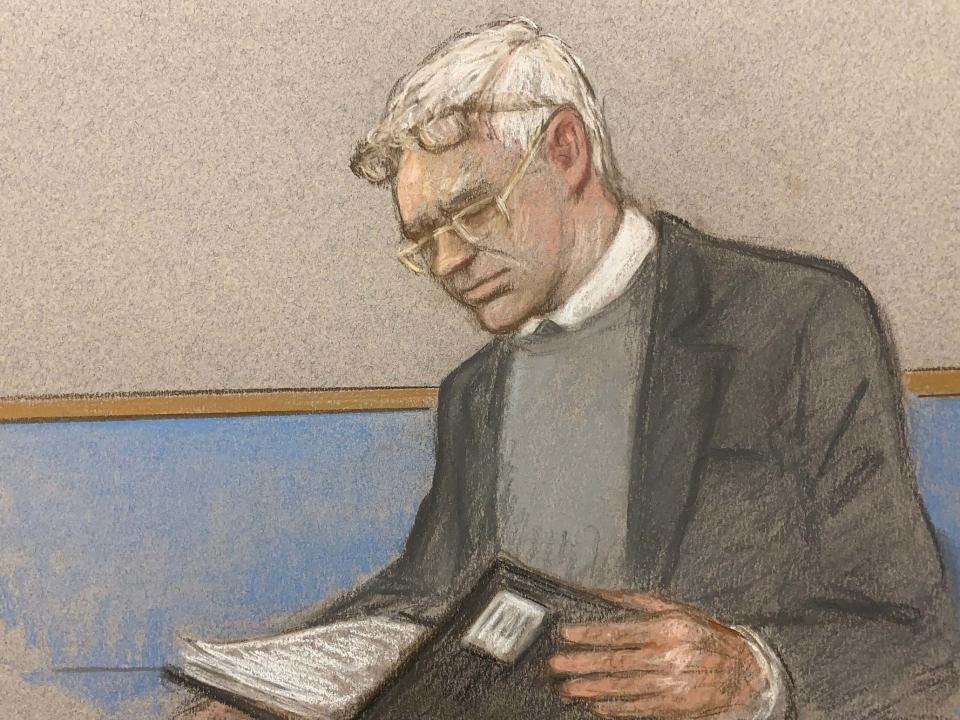Julian Assange: WikiLeaks founder ‘at high risk of suicide’ if extradited to US, hearing told

WikiLeaks founder Julian Assange is at “high risk of suicide” if he is sent to the US to face claims he endangered the lives of whistleblowers around the world, a court has heard.
At an extradition hearing in London, Assange’s lawyers argued he is the victim of a politically motivated prosecution that forms part of Donald Trump’s “war on investigative journalists”.
But the US government claimed some sources had “disappeared” after the WikiLeaks founder put them at risk of “serious harm, torture or even death” by leaking classified information.
James Lewis QC, opening the case against Assange, said on Monday that information published by WikiLeaks was useful to enemies of the US.
In response, lawyers for the 48-year-old editor and political activist have warned he could face “fatal consequences” if he is extradited to America, where he faces 18 charges including espionage and hacking allegations.
Assange faces up to 175 years in jail if found guilty of all of the charges, which relate to 2010 and 2011.
Mr Lewis told Woolwich Crown Court, which is sitting as a magistrates' court, that most of the charges related to “straightforward criminal activity” in a “conspiracy to steal from and hack into” the Department of Defence computer system.
“These are ordinary criminal charges and any person, journalist or source who hacks or attempts to gain unauthorised access to a secure system, or aids and abets others to do so, is guilty of computer misuse,” the barrister said.
“Reporting or journalism is not an excuse for criminal activities or a licence to break ordinary criminal laws.”
Mr Lewis said that the US identified hundreds of “at-risk and potentially at-risk people” around the world due to WikiLeaks’ actions and made efforts to warn them of the danger they faced.
“The US is aware of sources, whose redacted names and other identifying information was contained in classified documents published by WikiLeaks, who subsequently disappeared, although the US can't prove at this point that their disappearance was the result of being outed by WikiLeaks,” he added.
Edward Fitzgerald QC, representing Assange, said the extradition would be the “height of inhumanity”, exposing the WikiLeaks founder to a lengthy sentence in prison and leading to a “high risk of suicide”.
Mr Fitzgerald went on to say it was “completely misleading” to suggest Assange and WikiLeaks were to blame for the disclosure of unredacted names and suggested that the Trump administration was “making an example” of Assange.
The lawyer also alleged that spies had considered kidnapping or poisoning Assange while he was living inside the Ecuadorian embassy in London.
That claim was made by a whistleblower who also said private security agents from the Spanish firm UC Global, acting on behalf of the US, were involved in “intrusive and sophisticated” surveillance.
Assange’s extradition hearing will be adjourned at the end of the week and continue with three weeks of evidence scheduled to begin on 18 May.
A decision on the case is not expected for months and is likely to be appealed against by the losing side, whatever the outcome.
Assange has been held on remand in Belmarsh prison since last September after serving a 50-week jail sentence for breaching his bail conditions while living in the Ecuadorian embassy.
He entered the building in 2012 to avoid extradition to Sweden over sex offence allegations, which he has always denied and which were subsequently dropped because of the length of time which had passed.
Additional reporting by PA
Read more
Trump rejects claim he offered Julian Assange a pardon as 'total lie'

 Yahoo News
Yahoo News 